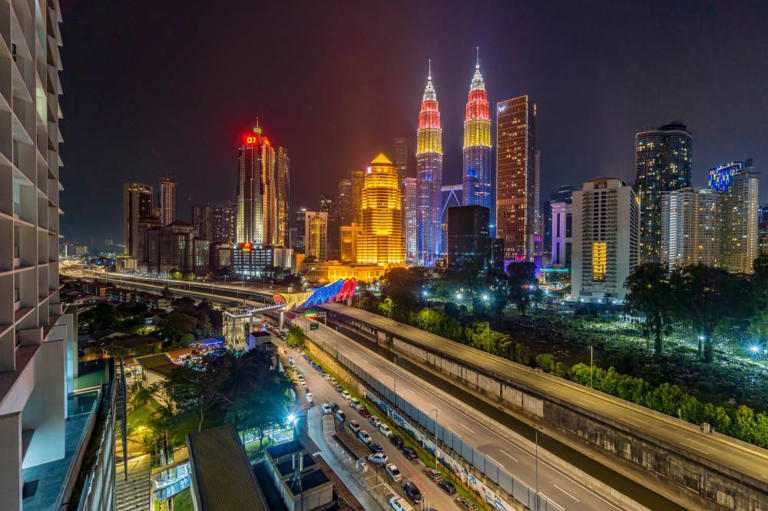Whether conferences, seminars, team-building retreats, or product launches, corporate events in Malaysia rely heavily on catering to leave a lasting impression. Food fuels productivity and reflects a company’s professionalism and attention to detail. However, budgeting for corporate catering can be challenging, as costs vary widely depending on factors like menu selection, guest count, and service style. This article breaks down the cost of corporate catering in Malaysia and answers key questions to help businesses plan effectively.
Factors Influencing Corporate Catering Costs
-
Type of Event
The nature of the event plays a significant role in pricing. A breakfast meeting with light refreshments will cost far less than a full-day conference requiring multiple meals or a formal gala dinner with premium dishes. For example, a half-day workshop might only need morning tea and lunch, while a multi-day event could involve breakfast, lunch, snacks, and beverages daily. -
Menu Selection
Menu complexity is a major cost driver. Basic buffets with local Malaysian staples like nasi lemak, fried rice, or mee goreng are budget-friendly, while international cuisines (e.g., Japanese, Italian) or custom menus with premium ingredients (seafood, imported meats) increase costs. Dietary preferences, such as halal, vegetarian, or vegan options, may also affect pricing. -
Service Style
-
Buffet: The most economical option, ideal for large groups.
-
Plated Meals: Higher cost due to added labor for plating and serving.
-
Live Stations: Interactive setups like pasta or satay stations add flair but come at a premium.
-
High Tea: Finger foods and desserts are mid-range but depend on the variety offered.
-
-
Number of Guests
Caterers often offer volume discounts for larger groups (e.g., 100+ pax). Conversely, small events may incur a minimum labor and logistics cost. -
Location
Urban centers like Kuala Lumpur and Penang typically have higher prices due to venue fees and caterer demand. Rural areas or in-office events may reduce costs. Additionally, remote venues might incur transportation surcharges. -
Additional Services
Extras like waitstaff, décor, themed setups, or equipment rental (tables, chairs, linens) add to the total cost.
Average Price Ranges in Malaysia (2023)
| Event Type | Cost Per Person (MYR) | Details |
|---|---|---|
| Breakfast Meeting | RM 15 – RM 30 | Light bites, coffee, and pastries. |
| Mid-Morning Snacks | RM 10 – RM 20 | Finger foods and beverages. |
| Lunch Buffet | RM 25 – RM 50 | Local and international dishes. |
| Formal Sit-Down Lunch | RM 40 – RM 80 | Multi-course plated meals. |
| High Tea | RM 30 – RM 60 | Sandwiches, cakes, and beverages. |
| Gala Dinner | RM 80 – RM 150+ | Premium menus with live cooking stations. |
Note: Prices exclude taxes (6% SST) and service charges (10%), which are common in Malaysia.
Tips to Reduce Corporate Catering Costs
-
Opt for Local Cuisine
Malaysian dishes are often more affordable than Western or niche cuisines. A mix of rice-based meals, noodles, and finger foods can satisfy diverse tastes without overspending. -
Limit Guest Counts
Invite only essential attendees to avoid over-catering. Confirm RSVPs early to adjust orders. -
Choose Buffet Over Plated Service
Buffets reduce labor costs and allow guests to control portions. -
Negotiate Packages
Many caterers offer discounts for repeat bookings or bundled services (e.g., combining food and décor). -
Avoid Peak Seasons
Catering prices rise during festive periods (Ramadan, Christmas) or peak event months (Q4). Schedule events during off-peak times for better rates.
5 FAQs About Corporate Catering Costs in Malaysia
1. What is the average cost per person for corporate catering?
For most corporate events, costs range between RM 25 and RM 80 per person. Breakfast and snack breaks start at RM 15–30, while lunches and dinners range from RM 25–150+, depending on menu complexity. Always confirm if taxes, service fees, and delivery are included in quotes.
2. Are there hidden costs to watch for?
Yes. Common hidden fees include:
-
Transportation charges for remote venues.
-
Overtime fees if the event runs longer than planned.
-
Equipment rentals (e.g., chafing dishes, cutlery).
-
Last-minute changes to the menu or guest count.
Request a detailed breakdown of costs before signing a contract.
3. How can I ensure halal compliance without overspending?
Most caterers in Malaysia offer halal-certified menus by default. To save costs, choose buffet-style local dishes like ayam masak merah (spicy chicken) or ikan bakar (grilled fish), which are flavorful yet affordable. Confirm certification with the caterer to avoid compromising compliance.
4. Is hiring a caterer or using in-house venue catering cheaper?
It depends. Venues often partner with caterers and may charge premium rates. External caterers could offer lower prices but may charge extra for logistics. Compare both options, and don’t hesitate to negotiate with venue managers for discounts.
5. Can I customize a budget-friendly menu?
Absolutely. Discuss your budget with the caterer upfront. Many providers offer customizable packages, such as combining a main dish with two sides or substituting premium proteins (e.g., beef) with chicken or tofu. Seasonal ingredients can also reduce costs.
Final Thoughts
Corporate catering in Malaysia balances affordability and quality, with diverse options to suit any budget. By understanding the factors that influence pricing—such as menu choices, service style, and guest numbers—businesses can make informed decisions without compromising on the attendee experience. Always request multiple quotes, clarify hidden fees, and prioritize caterers with strong reviews to ensure a seamless event.
Whether hosting a small team huddle or a large-scale conference, thoughtful planning and smart negotiation can deliver a memorable culinary experience that aligns with your company’s financial goals.

